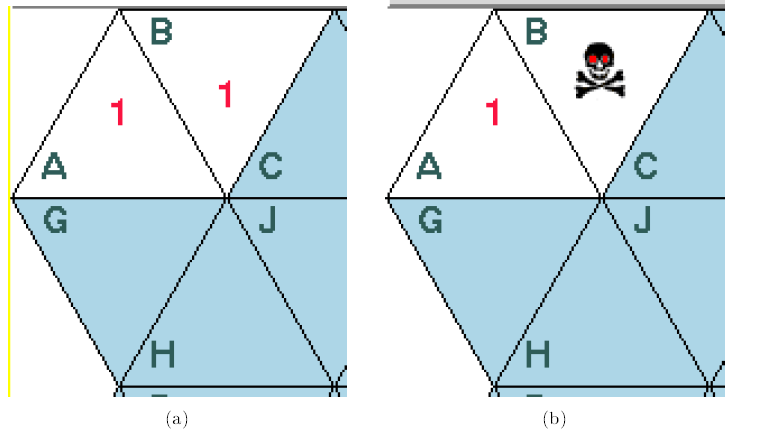Consider a game called WaterWorld, where each location is either empty sea or contains a pirate. When you enter a location, you must correctly anticipate whether or not it contains pirates.
- If you correctly anticipate open sea, you are able to enter and determine how many of the (up to 3) adjacent locations contain a pirate.
- If you correctly anticipate a pirate, the location is tagged as dangerous, and you gather no further information.
Furthermore, there are really two types of moves: guesses, and assertions. If you make an assertion, then even if you happen to be correct but it is possible you could have been wrong, then it is an error. Also, it is an error if you make a guess about a location if it is actually possible to assert a location's contents. The interesting fact about these types of games is that while sometimes guesses are necessary (when?), surprisingly often an assertion can be made.
(You can freely download WaterWorld at here.)

For instance, in the first board, what assertions can we be sure of? What, exactly, is your reasoning? How about in the second board? You can certainly envision wanting a computer player that can deduce certain moves, and make those for you automatically.
- 2164 reads






